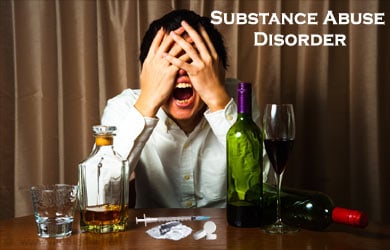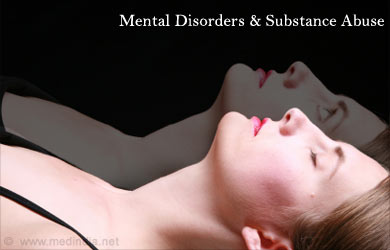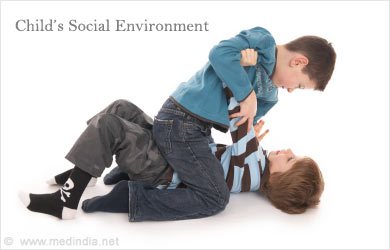- Substance use disorder - (http://en.wikipedia.org/wiki/substance_use_disorder)
- 9 Substance-Induced Disorders - (http://www.ncbi.nlm.nih.gov/books/nbk64178/)
- Substance Abuse and Mental Health Issues - (http://www.helpguide.org/articles/addiction/substance-abuse-and-mental-health.htm)
- Mental Health and Substance Use Disorders - (http://www.samhsa.gov/disorders/substance-use)
- Substance abuse - (http://en.wikipedia.org/wiki/substance_abuse)
What is Substance Abuse Disorder?
The World Health Organization defines substance abuse as the harmful or hazardous use of psychoactive substances, including tobacco, alcohol and illicit drugs.
The DSM-5 guidelines include both substance abuse disorder and substance dependence under a single term of ‘substance use disorders’, and are rated according to the degree of severity as mild, moderate or severe.

Substances such as tobacco, alcohol and drugs like cocaine, marijuana, substituted amphetamines, barbiturates and opioids are usually addictive to the extent that persons using these substances tend to commit crimes to procure these substances. Further, these substances disturb the cognitive processes in such a way that they result in several criminal acts and often land the users in jail.
Substance use disorder / substance abuse disorder has several consequences which include failure to meet work or school obligations, interpersonal conflicts in family or among friends, or criminal behavior. The mental health of the person may be otherwise normal and the disorder is exclusively induced by the abuse of the addictive substance. Following consequences are seen in a person with substance abuse disorder:
- Use of the substance causes the person and significant other a great deal of distress.
- Dependency on the substance interferes with the person’s daily life.
- Dependency also leads to the person behaving in such a way that puts himself or others in danger.
- The person finds it very difficult to stay away from the substance and hence spends a great deal of time trying to obtain it from various sources.
- The person keeps increasing the consumption when he no longer gets the “high” feeling with the usual amount. Physical tolerance leads to increase in the dosage to dangerous limits.
- When the effects of the substance wear off, the person often experiences uncomfortable and intolerable withdrawal symptoms.
Substance Abuse Disorder and Mental Health – What comes first?
Substance abuse disorders are closely linked to mental health disorder, though one does not directly cause the other. Some people opt for addictive substances to self-medicate the symptoms of anxiety and depression. But later, they become physically and mentally dependent on these substances.
Persons who are predisposed or are at risk of mental disorders may be affected by the substance abuse. Genetic, environmental and social factors that can cause mental disorders in a person, and such a person may be pushed to take up alcohol and drugs, resulting in adverse consequences.
Further, the use of alcohol and drugs can make the existing mental health problems worse. If the person with a mental health problem is undergoing treatment with prescription drugs like anti-anxiety or anti-depressants, alcohol and other drugs may react with the prescription drugs and cause dangerous side effects.
Bipolar disorders and substance abuse seems to be the most common combination among mental disorders caused by substance abuse. Use of substances in hazardous quantities shows their effects on the mental health of the person using them.

Types of Substance Abuse Disorder
Substance-induced disorders are the resulting disorders of substance abuse. The various disorders related to substance abuse include:
- Substance-induced anxiety disorder
- Substance-induced psychotic disorder
- Substance-induced mood disorder
- Substance-induced persisting amnesic disorder
- Substance-induced sexual dysfunction

- Substance-induced persisting dementia
- Substance-induced sleep disorder
- Substance-induced perceptual disorder
- Hallucinogen persisting perceptual disorder
The various types of substance-induced disorders are different from co-existing mental disorders and the psychiatric symptoms are consequences of substance use or abuse.
Causes of Substance Abuse Disorder
Use of substances like cigarettes, alcohol and illegal drugs and getting addicted to them usually starts during childhood or adolescent years. Some people may become dependent on these substances at work due to socializing and financial freedom.
Some of the risk factors for developing substance-abuse disorder include:
- Family environment that play an important role in the child’s physical, mental and emotional development.
- Genetic predisposition of being vulnerable to addictive substances.
- Lack of parental attachment and lack of nurturing environment.
- Child’s social environment like peer pressure, bullying, etc.

- Very aggressive or very shy behavior in classroom.
- Poor coping skills in social contexts.
- Poor performance in school.
- Perception of approval of drug use.
Signs and Symptoms of Substance Abuse Disorder
The person using drugs or alcohol and getting dependent on it may not reveal his addiction to close friends and family. However, certain symptoms and behavior changes can be noticed as the child or adult has taken to substances like drugs.
- Forgetfulness and relaxing in responsibilities.
- Feelings of depression and rundown.
- Giving up usual or past hobbies, interests and activities.
- Irritability and talking back.
- Disappearing money or valuables.
- Stocking up small boxes, pipers or rolled paper in pockets or purses.
- Avoiding friends and family to get drunk or high
- Holding on to belief that getting drunk or high is fun.
- Sounding very selfish and unconcerned about others.
- Frequent hangovers.

- Lying about how much of the drug he or she is consuming.
- Getting into trouble with law.
Early diagnosis and intervention makes the treatment easier and more successful. Certain signs noticed by the significant others that could indicate a substance use disorder include:
- Seizure or mild tremors due to alcohol withdrawal that are not accompanied by confusion
- Difficulty in speaking, visual changes or balancing problems
- Severe headache
- Swelling in legs
- Persistent cough
- Constant depression
- Pain at injection site, redness, swelling, discharge and fever
- Jaundice
- Increasing abdominal circumference
- Suicidal tendencies
- Severe pain in the stomach
- Very dark-colored urine
- Sudden loss of weight
- Unkempt appearance









